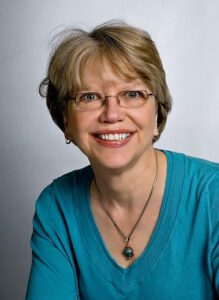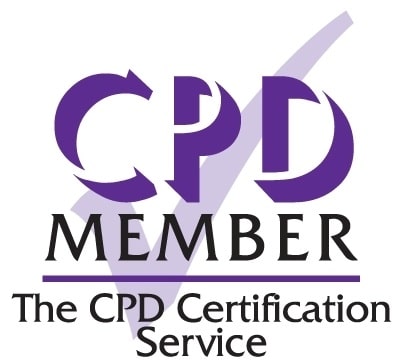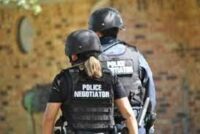2 day Training: Social Stories
 The Social Story Quiz.pdf
The Social Story Quiz.pdf Social Stories 10.2 Two-Day Workshops!
Cancelled until further notice.
Carol Gray, Consultant to Individuals with Autism and Founder, Team Social Stories™ and Social Stories Satellite Schools and Services. Social Stories™© A note from Carol Gray: I have had the fun and privilege of coming to Kettering each summer for several years. This year, however, I am focusing on completing a new book, as well as initiating a few other projects. As a result, I am not speaking outside of the United States in 2018. I look forward to returning to Kettering in the future with all of the latest Social Story information for this fast paced, interactive workshop. See you then! Venue: Kettering Conference Centre, Thurston Dr. Kettering, Northants NN15 6PB. UK Application Form. Click here Target Audience This two-day workshop is for any parent, professional, family member, or friend who is working on behalf of one or more children, adolescents, or adults with autism. Social Stories are an evidence-based practice in the field of autism. Often used with individuals with autism with moderate learning challenges to gifted academic ability, *Social Stories are applicable for all levels of cognitive impairment with adaptation and modification. Description This workshop is unique among Social Story workshops. Two full days will be devoted to the art and science of Social Stories. There will be an increased focus on practicing skills and discussing strategies – many of which have never been published or presented – so that you can put Social Stories to work like never before! Over the past two decades, Social Stories have earned the respect and enthusiastic affection of parents, professionals, and most importantly, people with autism. Come to update your skills and understanding of Social Stories, or to discover the ever- expanding versatility and value of this incredible instructional strategy for the very first time! Social Stories are one of the most popular evidence-based instructional strategies for learners with autism in the world. They are also frequently misused and misunderstood. Learning how to research, develop, and implement a genuine Social Story is critical to their effectiveness, safety, and integrity. The goal is to build positive social concepts and skills in an individually tailored, unassuming, and supportive learning context. This is a Social Stories 10.2 workshop. Social Stories 10.2 is the most recent version of the criteria that define what is, and what is not, a Social Story. Each participant receives a Social Stories 10.2 Certificate at the completion of the workshop. The current 10.2 Social Story Criteria:- Introduce a newly revised definition of Social Stories;
- Are based on a shorter albeit expanded rationale that includes context theory;
- Reflects new research and the most current experience with the Social Story approach;
- Retrieve ‘long lost’ but critical ideas from the “Social Story Archives’;
- Include new ideas, detail, and increased support for those who write Social Stories to eliminate wasted time in Story development and maximize the likelihood for a positive Story impact;
- Combine 7 types of Social Story Sentences into 2;
- Introduce new terms and their definitions and implications;
- Merge selected Social Stories 10.1 Criteria to add clarity, increase the emphasis given to important
- Increased large group participation throughout the two days (time is going to fly!);
- A complete rationale that allows for more time for discussion and skill development;
- An opportunity to apply the workshop content to a child, adolescent, or adult with autism;
- A merging of research and rationale with the presentation of the Social Story criteria to emphasize the ties between the two; and
- A comprehensive activity based on a new book by Dr. Siobhan Timmins, Successful Social Stories for Young Children: Growing Up with Social Stories (in press). London: Jessica Kingsley Publishers.
- Outline the philosophy and research-based rationale of every Social Story;
- Explain how the Social Story goal may be used by any parent or professional to determine what is – and is not – a Social Story,
- List the 10.2 criteria that ensure the integrity and safety of every Story, while demonstrating ‘fluency’ and understanding of the 10.1 criteria;
- Define all Social Story terms;
- Describe how research and philosophy create important ties between how a Story is researched, developed, and implemented;
- Write a Social Story.
 Carol Gray is a Consultant to Children, Adolescents, and Adults with Autism, providing support via workshops and presentations, information, referral, resources, and direct services for individuals with autism, their families, and professionals who work on their behalf. She is an internationally sought-after keynote and seminar speaker, and has completed over 1,000 presentations.
Carol is best known for the development of Social Stories, a well-respected evidence-based practice used worldwide with people with autism of all ages. Carol was the first teacher for students with autism at Jenison Public Schools in Jenison, Michigan, employed there from 1977 through 2004. In 1989, Carol began writing stories for her students to share information with them that they seemed to be missing, information that so many of us take for granted. Many of the stories resulted in immediate and marked improvement in her students’ responses to daily events and interactions.
Carol is also the founder of a very effective social philosophy that 1) ‘abandons all assumptions’, 2) regards both the typical and autism perspective as ‘equally valid’, and 3) recognizes the ‘social impairment in autism’ as shared (noting the well-intentioned but nonetheless misguided mistakes of parents and professionals). She has completed ground breaking work on some of the toughest topics in autism by reviewing the research, outlining new theories, and developing practical instructional strategies, most notably Gray’s Guide to Bullying (2004) and Gray’s Guide to Loss, Learning, and Students with ASD (2003).
Carol has received many awards for her work, including Social Thinking’s Lifetime Achievement
Award (San Francisco, 2015); Learning Spring School’s Spectrum Award for her global efforts
education and improving the lives of people with autism (New York City, 2012), the Autism
Society of America Education Book of the Year, The New Social Story Book: Revised and
Expanded 10th Anniversary Edition (2009), and the Barbara Lipinski Award (Lansing, Michigan,
2005) for her international contribution to the education and welfare of people with autism. She
is a member of the Advisory Board on Disabilities for Delta Airlines, where she represents
passengers with autism.
Carol lives in west Michigan with her husband, Brian, and two basset hounds, Hank and Emma.
Brian and Carol are the parents of two grown children, Joanna and Barrett, and grandparents to
Ryan. In the summer, Carol lives at the family cottage where she is often found in the garden or library (pictured)– a library that she runs for the people who live on their chain of lakes. In the winter, Carol enjoys watching HGTV and American Pickers, trying new recipes (especially casseroles and comfort food), and walking daily with friends at the dog park.
PUBLICATIONS
Carol has written several articles and chapters in addition to the resources that are listed below. Many of them are available as a free download in The Morning News/Jenison Autism Journal section of this website, and may also be highlighted below.
Gray, C. 2015). The new Social Story™ book: 15th anniversary edition. Arlington, TX: Future Horizons.
Gray, C. (2012). The last bedtime story that we read each night. Arlington, TX: Sensory World / Future Horizons.
Gray, C. 2010). The new Social Story™ book: Revised and expanded 10th anniversary edition. Arlington, TX: Future Horizons.
Gray, C. (2004). Social Stories™ 10.0. Jenison Autism Journal: 15, (4), 2-21.
Gray, C. (2002). Watch, listen, move closer, ease in. Jenison Autism Journal: 14, (3), 10 page rip-out insert.
Gray, C. (2000a). Writing Social Stories with Carol Gray [Video and accompanying workbook]. Arlington, TX: Future Horizons.
Gray, C. (1999). Gray’s guide to compliments. The Morning News: 11, (1), 20 page rip-out insert.
Gray, C. (1998a). Social Stories and Comic Strip Conversations (pp.167-198). In Schopler, E., Mesibov, G., and Kunce, L. (Eds.), Asperger Syndrome or High-Functioning Autism? New York: Plenum Press.
Gray, C. (1998b). The Advanced Social Story workbook. The Morning News: 10, (2), 24 page rip-out insert.
Gray, C. (1995). Teaching children with autism to “read” social situations. In Quill, K.A. (Ed.), Teaching Children with Autism: Strategies to Enhance Communication and Socialization. New York: Delmar Publishers, Inc.
Gray, C. (1994). Comic strip conversations. Arlington, TX: Future Horizons.
Gray, C. & Garand, J. (1993). Social Stories: Improving responses of individuals with autism with accurate social information. Focus on Autistic Behavior, 8, 1-10.
Gray, C. & White, A. L. (2000). My Social Stories book. London: Jessica Kingsley Publishers.
Contact Carol Gray
If you would like Carol to speak for your group or organization, complete the workshop request form and send it to http://carolgraysocialstories.com/contact/schedule-speaking-engagement/
Carol will respond to you personally within a few days..
Venue: KLV Kettering Conference Leisure Village, Thurston Drive, Kettering, Northants. UK
FEES include light buffet lunch each day and am/pm. refreshments. Coffee/tea on arrival.
If you wish to attend, please complete and return the application form, together with a cheque (or to be invoiced to?) made payable to S.F.T.A.H.:
Autism Independent UK.
199/203 BLANDFORD AVENUE KETTERING, NORTHANTS NN16 9AT
TEL. OR FAX: 01536 523274
Upon receipt of your application and/or payment you will be sent further literature concerning the seminar, together with confirmation of your booking.
Application Form. Click here
Carol Gray is a Consultant to Children, Adolescents, and Adults with Autism, providing support via workshops and presentations, information, referral, resources, and direct services for individuals with autism, their families, and professionals who work on their behalf. She is an internationally sought-after keynote and seminar speaker, and has completed over 1,000 presentations.
Carol is best known for the development of Social Stories, a well-respected evidence-based practice used worldwide with people with autism of all ages. Carol was the first teacher for students with autism at Jenison Public Schools in Jenison, Michigan, employed there from 1977 through 2004. In 1989, Carol began writing stories for her students to share information with them that they seemed to be missing, information that so many of us take for granted. Many of the stories resulted in immediate and marked improvement in her students’ responses to daily events and interactions.
Carol is also the founder of a very effective social philosophy that 1) ‘abandons all assumptions’, 2) regards both the typical and autism perspective as ‘equally valid’, and 3) recognizes the ‘social impairment in autism’ as shared (noting the well-intentioned but nonetheless misguided mistakes of parents and professionals). She has completed ground breaking work on some of the toughest topics in autism by reviewing the research, outlining new theories, and developing practical instructional strategies, most notably Gray’s Guide to Bullying (2004) and Gray’s Guide to Loss, Learning, and Students with ASD (2003).
Carol has received many awards for her work, including Social Thinking’s Lifetime Achievement
Award (San Francisco, 2015); Learning Spring School’s Spectrum Award for her global efforts
education and improving the lives of people with autism (New York City, 2012), the Autism
Society of America Education Book of the Year, The New Social Story Book: Revised and
Expanded 10th Anniversary Edition (2009), and the Barbara Lipinski Award (Lansing, Michigan,
2005) for her international contribution to the education and welfare of people with autism. She
is a member of the Advisory Board on Disabilities for Delta Airlines, where she represents
passengers with autism.
Carol lives in west Michigan with her husband, Brian, and two basset hounds, Hank and Emma.
Brian and Carol are the parents of two grown children, Joanna and Barrett, and grandparents to
Ryan. In the summer, Carol lives at the family cottage where she is often found in the garden or library (pictured)– a library that she runs for the people who live on their chain of lakes. In the winter, Carol enjoys watching HGTV and American Pickers, trying new recipes (especially casseroles and comfort food), and walking daily with friends at the dog park.
PUBLICATIONS
Carol has written several articles and chapters in addition to the resources that are listed below. Many of them are available as a free download in The Morning News/Jenison Autism Journal section of this website, and may also be highlighted below.
Gray, C. 2015). The new Social Story™ book: 15th anniversary edition. Arlington, TX: Future Horizons.
Gray, C. (2012). The last bedtime story that we read each night. Arlington, TX: Sensory World / Future Horizons.
Gray, C. 2010). The new Social Story™ book: Revised and expanded 10th anniversary edition. Arlington, TX: Future Horizons.
Gray, C. (2004). Social Stories™ 10.0. Jenison Autism Journal: 15, (4), 2-21.
Gray, C. (2002). Watch, listen, move closer, ease in. Jenison Autism Journal: 14, (3), 10 page rip-out insert.
Gray, C. (2000a). Writing Social Stories with Carol Gray [Video and accompanying workbook]. Arlington, TX: Future Horizons.
Gray, C. (1999). Gray’s guide to compliments. The Morning News: 11, (1), 20 page rip-out insert.
Gray, C. (1998a). Social Stories and Comic Strip Conversations (pp.167-198). In Schopler, E., Mesibov, G., and Kunce, L. (Eds.), Asperger Syndrome or High-Functioning Autism? New York: Plenum Press.
Gray, C. (1998b). The Advanced Social Story workbook. The Morning News: 10, (2), 24 page rip-out insert.
Gray, C. (1995). Teaching children with autism to “read” social situations. In Quill, K.A. (Ed.), Teaching Children with Autism: Strategies to Enhance Communication and Socialization. New York: Delmar Publishers, Inc.
Gray, C. (1994). Comic strip conversations. Arlington, TX: Future Horizons.
Gray, C. & Garand, J. (1993). Social Stories: Improving responses of individuals with autism with accurate social information. Focus on Autistic Behavior, 8, 1-10.
Gray, C. & White, A. L. (2000). My Social Stories book. London: Jessica Kingsley Publishers.
Contact Carol Gray
If you would like Carol to speak for your group or organization, complete the workshop request form and send it to http://carolgraysocialstories.com/contact/schedule-speaking-engagement/
Carol will respond to you personally within a few days..
Venue: KLV Kettering Conference Leisure Village, Thurston Drive, Kettering, Northants. UK
FEES include light buffet lunch each day and am/pm. refreshments. Coffee/tea on arrival.
If you wish to attend, please complete and return the application form, together with a cheque (or to be invoiced to?) made payable to S.F.T.A.H.:
Autism Independent UK.
199/203 BLANDFORD AVENUE KETTERING, NORTHANTS NN16 9AT
TEL. OR FAX: 01536 523274
Upon receipt of your application and/or payment you will be sent further literature concerning the seminar, together with confirmation of your booking.
Application Form. Click here 

